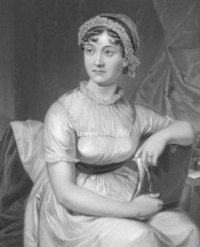Persuasion is Jane Austen’s last completed novel before her death. By the time Jane wrote this, she was older, mature and wiser, and you can see that reflected in her novel, persuasion as the heroine Anne Elliot is 27, old maid who had rejected her true love when she was barely 19, guided by godmother as Wentworth was orphan and poor. Now almost 8.5 years later situation is reversed, Anne’s father is in poor condition and Wentworth has made money and become super rich. Can they have second chance at love? My favorite book to read and movie to watch.
If there is any thing disagreeable going on, men are always sure to get out of it.”
—–— Jane Austen, Persuasion
“I believe you [men] capable of everything great and good in your married lives. I believe you equal to every important exertion, and to every domestic forbearance, so long as – if I may be allowed the expression, so long as you have an object. I mean, while the woman you love lives, and lives for you. All the privilege I claim for my own sex (it is not a very enviable one, you need not covet it) is that of loving longest, when existence or when hope is gone.”
—–— Jane Austen, Persuasion
Elizabeth had succeeded at sixteen to all that was possible of her mother’s rights and consequence; and being very handsome, and very like himself, her influence had always been great, and they had gone on together most happily. His other two children were of very inferior value. Mary had acquired a little artificial importance by becoming Mrs Charles Musgrove; but Anne, with an elegance of mind and sweetness of character, which must have placed her high with any people of real understanding, was nobody with either father or sister; her word had no weight, her convenience was always to give way — she was only Anne.
- Ch. 1
“What wild imaginations one forms, where dear self is concerned! How sure to be mistaken.”
—–— Jane Austen, Persuasion
“Yes; it is in two points offensive to me; I have two strong grounds of objection to it. First, as a means of bringing persons of obscure birth into undue distinction, and raising men to honours which their fathers and grandfathers never dreamt of; and secondly, as it cuts up a man’s youth and vigour most horribly; a sailor grows old sooner than any other man. I have observed it all my life. A man is in greater danger in the navy of being insulted by the rise of one whose father his father might have disdained to speak to, and of becoming prematurely an object of disgust himself, than in any other line.”
- Ch. 3
“‘My idea of good company…is the company of clever, well-informed people, who have a great deal of conversation; that is what I call good company.’ ‘You are mistaken,’ said he gently, ‘that is not good company, that is the best.'”
—–— Jane Austen, Persuasion
She had been forced into prudence in her youth, she learned romance as she grew older: the natural sequence of an unnatural beginning.
- Ch. 4
“There is hardly any personal defect… which an agreeable manner might not gradually reconcile one to.”
—–— Jane Austen, Persuasion
She thought it was the misfortune of poetry to be seldom safely enjoyed by those who enjoyed it completely; and that the strong feelings which alone could estimate it truly were the very feelings which ought to taste it but sparingly.
- Ch. 11
“One man’s ways may be as good as another’s, but we all like our own best.”
—–— Jane Austen, Persuasion
All the privilege I claim for my own sex (it is not a very enviable one: you need not covet it), is that of loving longest, when existence or when hope is gone!
- Ch. 23
- Said by Anne Elliott
“How quick come the reasons for approving what we like.”
—–— Jane Austen, Persuasion
You pierce my soul. I am half agony, half hope. Tell me not that I am too late, that such precious feelings are gone for ever. I offer myself to you again with a heart even more your own than when you almost broke it, eight and a half years ago. Dare not say that a man forgets sooner than woman, that his love has an earlier death. I have loved none but you. Unjust I may have been, weak and resentful I have been, but never inconstant.”
- Ch. 23
“A man does not recover from such a devotion of the heart to such a woman! – He ought not – he does not.”
—–— Jane Austen, Persuasion
If I was wrong in yielding to persuasion once, remember that it was to persuasion exerted on the side of safety, not of risk. When I yielded, I thought it was to duty; but no duty could be called in aid here. In marrying a man indifferent to me, all risk would have been incurred, and all duty violated.”
- Ch. 23
- Said by Anne Elliott
“She felt that she could so much more depend upon the sincerity of those who sometimes looked or said a careless or hasty thing, than of those whose presence of mind never varied, whose tongue never slipped.”
—–— Jane Austen, Persuasion
“Here and there, human nature may be great in times of trial, but generally speaking it is its weakness and not its strength that appears in a sick chamber; it is selfishness and impatience rather than generosity and fortitude, that one hears of.”
—–— Jane Austen, Persuasion
Anne was tenderness itself, and she had the full worth of it in Captain Wentworth’s affection. His profession was all that could ever make her friends wish that tenderness less, the dread of a future war all that could dim her sunshine. She gloried in being a sailor’s wife, but she must pay the tax of quick alarm for belonging to that profession which is, if possible, more distinguished in its domestic virtues than in its national importance.
- Ch. 24
Image source: wikipedia


